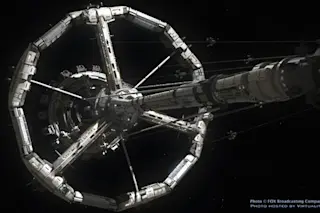Planets and moons do not give up their secrets willingly or easily -- they make us work for every clue we get. That seems particularly true when it comes to the search for extraterrestrial life. Even then, some bodies in the Solar System make us work harder than others.
Take Titan, for example. Two weeks ago, I wrote that observations of Titan from Cassini have been interpreted by some as possible signs of life, in particular:
Now it turns out that computer simulations based upon Cassini observations, simulations which hint at depletions of various chemical species at Titan’s surface may again hint at the possibility of life on Titan. The results are very preliminary, but fascinating nevertheless.
It's highly unlikely that we'll ever be able to make a positive determination if there's life on Titan based upon Cassini data alone. Cassini is, after all, an orbiter, and its observations of ...




